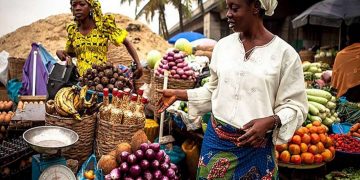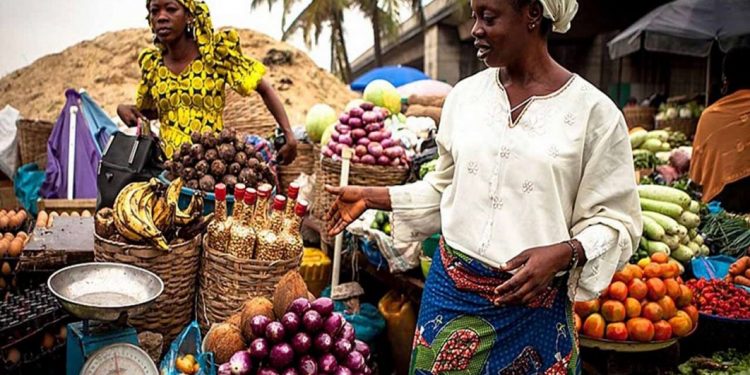By John Ikani
Nigeria’s inflation rate surged to 33.9% in October, fueled by soaring food prices, according to official data. This marks an increase from the 32.70% rate recorded in September.
The National Bureau of Statistics reported that food inflation nearly hit 40% year-on-year in October, up from 37.77% previously. The sharp rise was driven by the higher costs of essential items like maize, rice, and cooking oil.
Rising prices may prompt further action from the central bank, which has already raised interest rates five times this year in efforts to curb inflation.
After a brief dip in July, fluctuating petrol prices, coupled with severe summer flooding that destroyed farmlands, led to higher food costs, eroding household savings and intensifying Nigeria’s cost of living crisis.
The inflation surge follows significant policy changes by President Bola Tinubu, who ended the fuel subsidy and devalued the Naira twice.
In August, protesters took to the streets in various regions, voicing their frustration over the rising cost of living. They called for the reinstatement of subsidies on petrol and electricity to alleviate the financial burden on citizens.




































